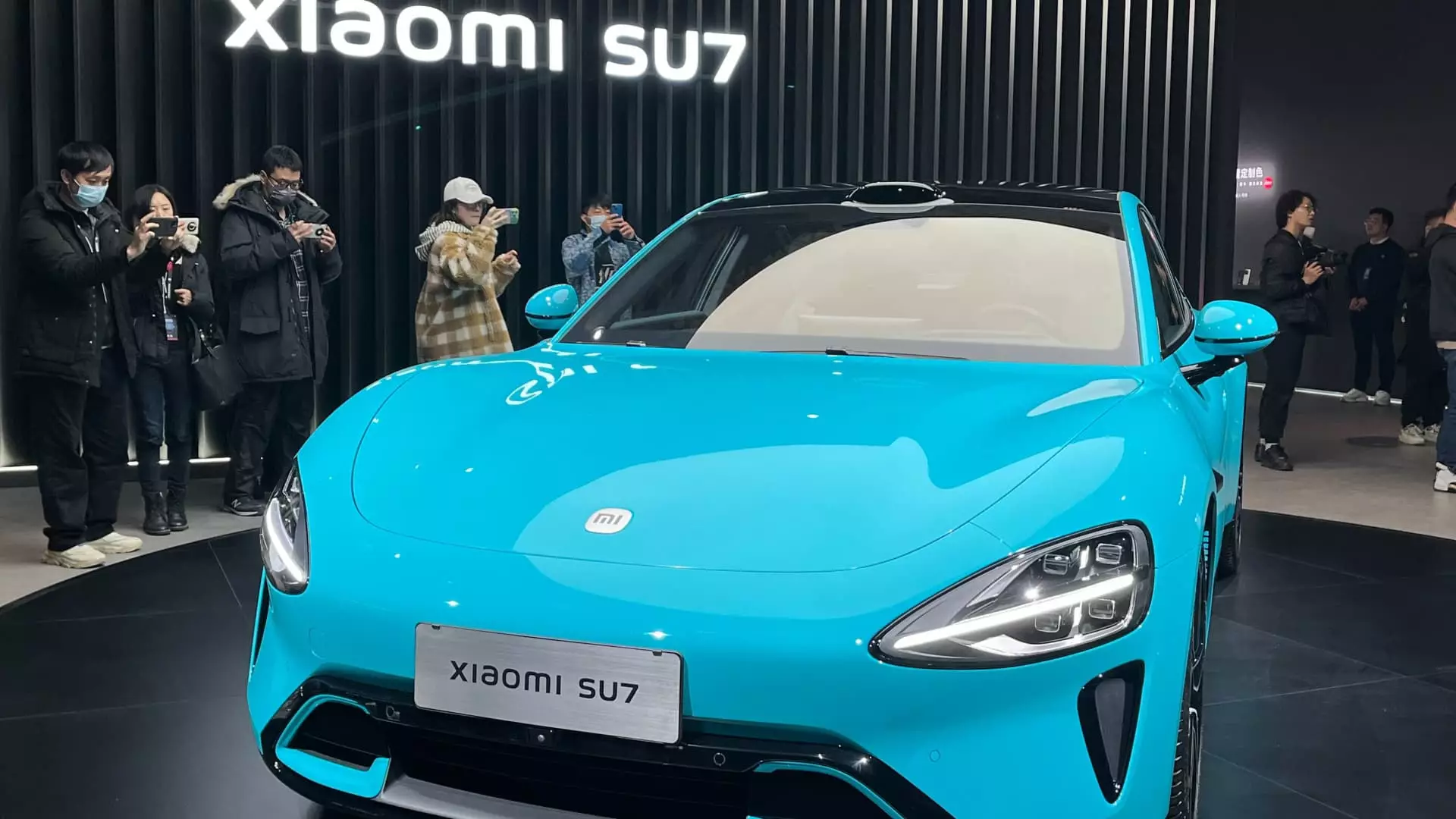The Chinese smartphone company Xiaomi has made waves in the electric car market with the announcement of its first car, the SU7. Priced significantly lower than Tesla’s Model 3, the SU7 has garnered attention for its competitive price point of 215,900 yuan ($30,408) in China. Xiaomi CEO Lei Jun stated that the company will be selling each car at a loss, signaling a bold move to establish a presence in the fiercely competitive electric car industry.
Lei Jun claimed that the standard version of the SU7 outperforms the Model 3 on more than 90% of its specifications, with a minimum driving range of 700 kilometers (nearly 435 miles) versus the Model 3’s 606 kilometers. Despite these superior specifications, Xiaomi acknowledges that it may take several years to catch up with Tesla in certain aspects. The company’s emphasis on performance and range showcases its commitment to innovation and technological advancement in the electric vehicle sector.
The introduction of the SU7 marks Xiaomi’s entry into a competitive market in China, where established players like Tesla are dominating the electric car segment. Competing against companies like BYD, Nio, Xpeng, and Geely-owned Zeekr, Xiaomi faces significant challenges in gaining market share and brand recognition. The partnership between Chinese telecommunications giant Huawei and traditional automakers further intensifies the competition in the electric car industry.
Xiaomi’s launch of the SU7 is part of its broader strategy to build an ecosystem of devices connected to its new HyperOS operating system. The company’s focus on integrating technology across different product categories reflects its ambition to create a seamless user experience for consumers. By offering accessories and features such as in-car refrigerators, custom window shades, and smartphone holders, Xiaomi aims to differentiate the SU7 in a crowded market.
Despite the initial success of the SU7 launch with over 50,000 orders in the first 27 minutes, Xiaomi faces challenges in establishing itself as a major player in the electric car market. The company’s ambition to compete with premium brands like Porsche with the release of the “Max” version of the SU7 signals its long-term vision for the electric car segment. Xiaomi’s commitment to driver-assist technology and connectivity highlights its focus on innovation and customer experience.
As Xiaomi continues to expand its presence in the electric car market, the success of the SU7 will depend on factors such as brand reputation, product quality, and market positioning. With a strong emphasis on affordability and innovation, Xiaomi aims to capture a significant share of the growing electric vehicle segment in China. The company’s strategy to target a premium user segment indicates its long-term commitment to establishing itself as a key player in the electric car industry.
Xiaomi’s entry into the electric car market with the SU7 represents a significant milestone in the company’s evolution as a technology innovator. By challenging established players and offering competitive pricing and specifications, Xiaomi is poised to make a mark in the competitive electric car industry. With a focus on ecosystem integration and future readiness, Xiaomi’s foray into electric vehicles signals its ambition to disrupt the market and capture the imagination of consumers.


Leave a Reply